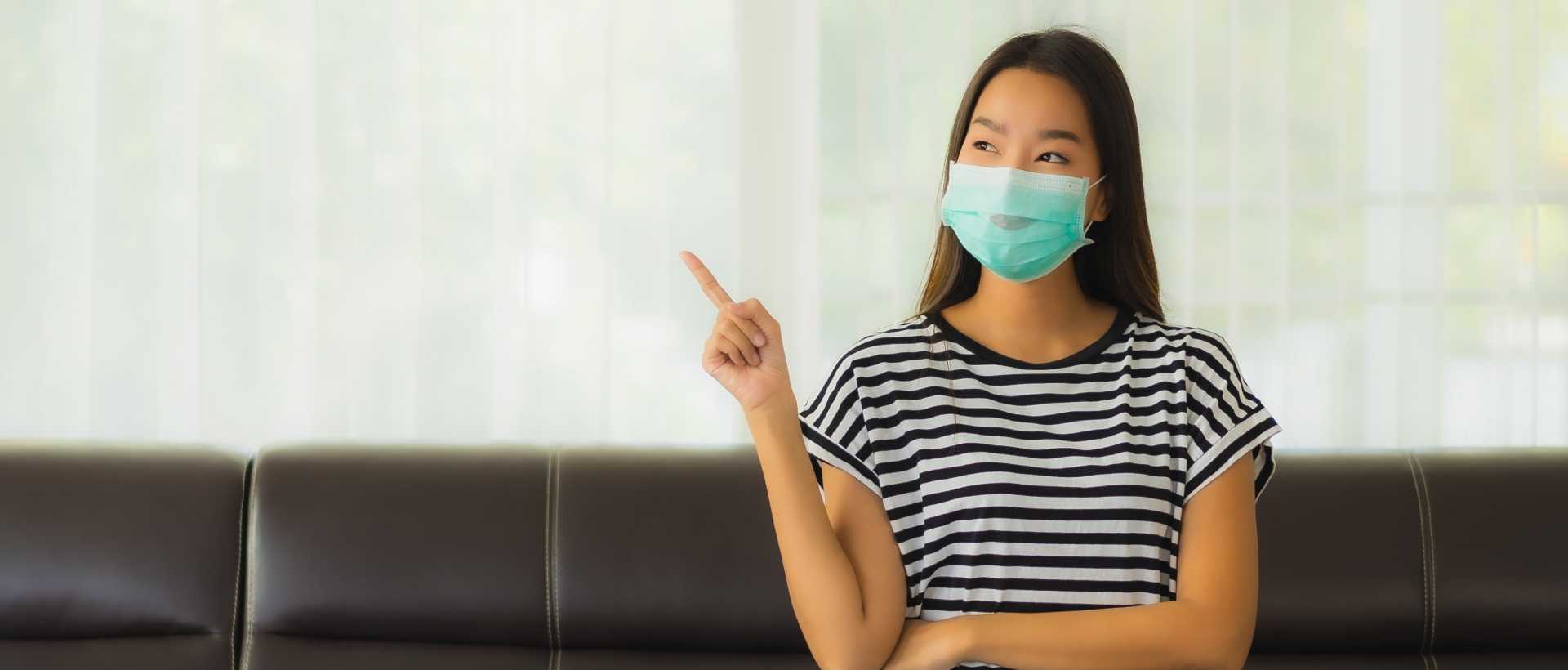
The COVID-19 outbreak has been declared a "Public Health Emergency of International Concern" by the World Health Organization (WHO), following its rapid global spread and the potential severity of the virus. In response, governments worldwide have implemented safety guidelines such as frequent handwashing, mask-wearing, avoiding crowded spaces, and practicing social distancing. These measures are essential not only to protect individuals but also to safeguard communities, especially the most vulnerable — including the elderly and those with pre-existing health conditions.
Mental Health in a Pandemic: The Hidden Toll
While these safety protocols are critical in combating the spread of the virus, their psychological impact cannot be ignored. The sudden disruption of daily routines, along with heightened uncertainty, isolation, and fear, can contribute to increased stress and mental health concerns. If left unaddressed, these stressors can lead to serious mental health challenges such as anxiety, depression, and even post-traumatic stress.
Staying Calm is as Crucial as Staying Safe
Persistent panic and worry — common reactions in times of uncertainty — can compromise decision-making, strain relationships, and even weaken the immune system. In these uncertain times, staying calm becomes just as important as staying safe. By staying calm, individuals are better equipped to respond thoughtfully rather than to react impulsively. Calmness is not ignorance of reality, rather, it is approaching the crisis with clarity, compassion and resilience. It helps people stay grounded, maintain perspective, and support one another more effectively. In essence, calmness becomes a powerful tool to navigate chaos with strength and grace.
Mental health professionals emphasize the use of evidence-based coping strategies, such as structured self-care routines and mindful communication, to help individuals manage stress and emotional turmoil. These tools can foster emotional resilience and provide a sense of stability in the face of uncertainty.
Self-Care: The Foundation of Resilience
Self-care involves prioritizing your own needs and well-being — a cornerstone of mental resilience. It includes practices such as regular physical activity (like home workouts or safe outdoor walks), maintaining a nutritious diet, and ensuring adequate sleep. These activities contribute to stabilizing moods, reducing stress, and enhancing overall mental well-being.
Another crucial element of self-care during this time is establishing a daily routine. This global crisis has introduced disorientation into our lives. To combat this, having a structured day will help, for it brings a sense of normalcy and control over one’s life. A routine such as setting consistent wake-up times, meal schedules, and allocating time for work, relaxation, and family interactions can be incredibly beneficial in maintaining emotional balance.
Connecting While Distancing
While everyday routines may be on hold, time with family and friends doesn’t have to be. This crisis offers a unique opportunity to reconnect with loved ones. Engage in shared, unstructured activities such as cooking, playing games, or gardening. These simple interactions can strengthen relationships and offer emotional comfort.
Technology also plays a key role in maintaining these bonds. Use video calls, messaging apps, or phone conversations to stay connected with those who live far away. Emotional support from these interactions helps alleviate feelings of loneliness and reinforces the sense that “we’re all in this together”. Turn this period of crisis to a period of connection – strengthen relationships and create lasting memories!
Mindful Communication: A Powerful Coping Tool
In such challenging times, practicing mindful communication can make a meaningful difference. Being fully present, actively listening, and expressing yourself clearly helps reduce misunderstandings and emotional distress. It fosters empathy and allows individuals to share their experiences more adaptively. This strengthens relationships and enhances emotional coping — both of which are vital during a crisis.
Be Mindful of What You Consume — Including News
Just like mindful conversations matter, mindful consumption of information is equally important. Staying updated is necessary, but overexposure to distressing news or misinformation can lead to heightened anxiety and fear. Allocate specific times during the day to check reliable news sources and avoid continuous scrolling through social media. This helps prevent information overload, reduce anxiety and bring in better mental clarity (WHO, 2020).
Empathy and Compassion Go a Long Way
These are challenging times for everyone, and it’s important to extend compassion not only to others but also to yourself. Understand that everyone is dealing with the pandemic in their own way. Recognizing these differences fosters empathy, patience, and a sense of community. Offering support, even virtually, can create a ripple effect of positivity and encouragement.
Moving Forward with Resilience and Hope
By adhering to safety protocols and taking intentional steps to care for our mental health, we can navigate the uncertainty of the COVID-19 pandemic with strength and hope. This global crisis is a shared experience — and with connection, communication, and compassion, we can emerge from it more resilient than before.


